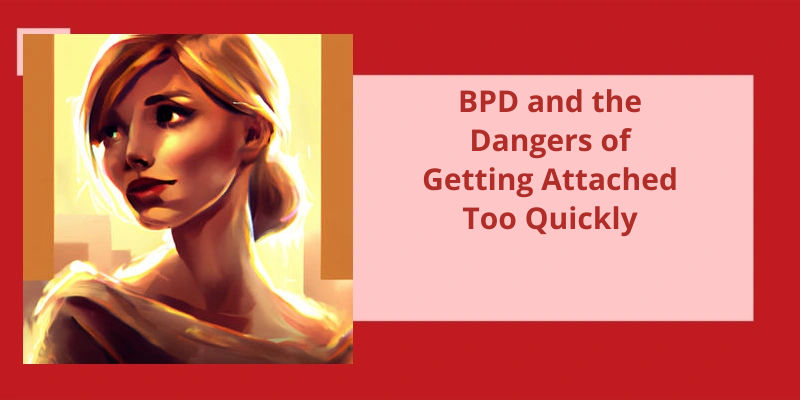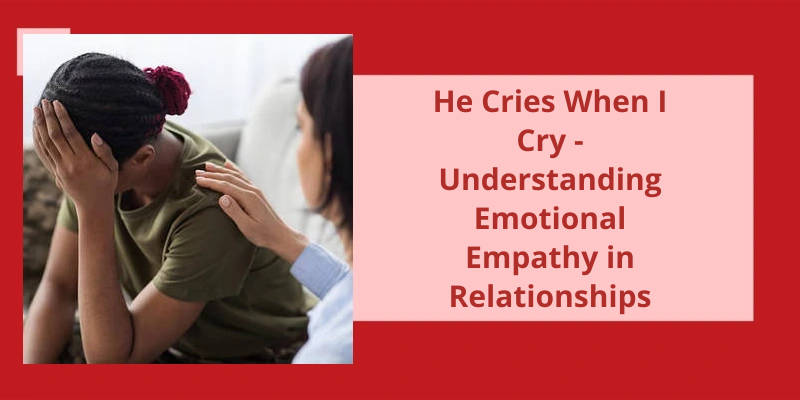It's a familiar feeling for many of us in the digital age: we're using our phones, and suddenly we get the nagging suspicion that someone, somewhere, is watching us. Perhaps we're being spied on by hackers, or our every move is being monitored by Big Brother. But for some people, this fear goes beyond a vague unease and becomes a crushing phobia, preventing them from using their phones or even leaving their homes. This fear of being watched through phone cameras is known as scopophobia, and it can have serious consequences for people's mental health and quality of life. In this article, we'll explore what causes scopophobia, how it can be treated, and what steps you can take to keep your privacy intact in an increasingly connected world.
Why Am I So Paranoid About Cameras?
This is because being observed can signify a potential threat or danger to our survival. Cameras, in particular, have become ubiquitous in our society. They capture and record our every move, both in public and private spaces. This constant monitoring can make us feel like we’re being watched and scrutinized at all times.
In addition to this, the rise of social media and the internet has made it even easier for our personal information and images to be shared and circulated without our knowledge or consent. This loss of control over our own image and privacy can be unsettling and lead to increased feelings of paranoia.
Furthermore, the use of cameras for surveillance purposes has raised concerns about government and corporate overreach. The knowledge that our every move could be monitored and analyzed can breed a sense of distrust and fear of authority.
Personal experiences, such as being victimized by stalking or harassment, can also trigger a fear of cameras. The knowledge that someone could be watching and recording our every move can create a sense of vulnerability and helplessness.
The Impact of Facial Recognition Technology on Paranoia About Cameras
- Facial recognition technology has the potential to increase paranoia about cameras among some individuals.
- There are concerns that the use of facial recognition technology by governments and law enforcement agencies could lead to invasive surveillance and violations of privacy.
- Some people may become more self-conscious and anxious in public spaces where facial recognition technology is present.
- The potential for false identifications and wrongful accusations based on facial recognition technology also contributes to paranoia about cameras.
- However, proponents of facial recognition technology argue that it can enhance security and reduce crime.
- It’s important to weigh the potential benefits and risks of facial recognition technology and consider the ethical and legal implications before widespread adoption.
While specific and social phobias can cause distressing symptoms in those who suffer from them, there’s one particular phobia that’s less well-known: the fear of being watched at night. This fear, also known as scopophobia, can cause a range of physical and emotional symptoms in those who experience it. In this article, we’ll explore the causes, symptoms, and treatments for this condition.
Is There a Phobia of Being Watched at Night?
The fear of being watched at night is a common concern. People may feel uneasy, paranoid, or afraid when they think they’re being watched or observed. This can lead to a sense of dread, anxiety, and discomfort that can affect their quality of life. While some individuals may feel this way occasionally or for brief periods of time, others may experience intense and persistent feelings of fear and paranoia that interfere with their daily activities.
Scopophobia is a type of anxiety disorder that’s closely related to the fear of being watched. It’s characterized by an intense fear of being scrutinized, observed, or noticed by others. Individuals who suffer from scopophobia may experience a range of physical and emotional symptoms, including rapid heartbeat, sweating, trembling, nausea, and panic attacks. They may also avoid social situations, public speaking, and other activities that may require them to be in the spotlight.
The causes of scopophobia aren’t fully understood, but researchers have identified a number of factors that may contribute to the development of this condition. These include genetics, environmental factors, past traumatic experiences, and learned behaviors. People who’ve a family history of anxiety disorders, or who’ve experienced traumatic events in the past, may be more likely to develop scopophobia.
Treatment for scopophobia typically involves a combination of medication and therapy. Antidepressant and anti-anxiety medications may be prescribed to help manage symptoms, while cognitive-behavioral therapy (CBT) can help individuals learn strategies to cope with their fear and overcome avoidance behaviors. Exposure therapy, which involves gradually exposing individuals to situations that trigger their fear, can also be effective in helping people overcome scopophobia.
With the right care, people can overcome this fear and lead happy, fulfilling lives.
Source: At night, when I’m sleeping, I feel someone is watching …
If you’re someone who feels nervous or intimidated when faced with a camera, you’re not alone. The idea of being filmed or photographed can be unsettling to many people, causing them to freeze up or act awkwardly. However, with a few simple techniques and mindset shifts, it’s possible to overcome camera anxiety and feel more confident in front of the lens. From using the mirror image default to not taking yourself too seriously, here are seven tips to help you conquer your camera fears.
How Do I Stop Being Scared of Cameras?
Cameras have become an integral part of our daily lives. From capturing memories to creating content, we use cameras for a variety of purposes. However, many people experience camera anxiety, which is the fear of being in front of a camera. The thought of being scrutinized and judged by others can be nerve-wracking. If youre someone who feels anxious in front of the camera, there are some simple tips you can follow to overcome your camera anxiety.
One of the best ways to be comfortable in front of the camera is by using the “mirror image” default mode. When recording, imagine youre talking to yourself in a mirror. By doing this, youll feel less conscious of the camera and more relaxed. This technique will help you get used to the camera and make you feel less anxious.
Many people find deep breathing to be a useful technique to remain calm and relaxed. By taking slow, deep breaths, youll slow down your heart rate and reduce your anxiety levels.
Another important tip is to minimize distractions while recording. When youre anxious, even the slightest distraction can make things worse. So, create a focused workspace and try to avoid any external factors that can distract you.
When youre recording, it’s important to speak at a slower pace. This will help you articulate your words better and will also give you time to gather your thoughts. Speaking slowly will reduce the pressure you feel, and youll feel more confident in front of the camera.
It’s also important to look directly at the camera when recording. When you do this, youll appear more engaged and connected with your audience. This will also help you to focus on the task at hand and reduce your anxiety levels.
Another important tip is to include “human moments” in your recordings. By sharing your personal anecdotes and experiences, youll appear more relatable and human. This will help to build a connection with your audience and reduce any anxiety you may be feeling.
Lastly, remember that it’s okay to not take yourself too seriously. Many successful camera personalities have had their fair share of mishaps and mistakes, but theyve learned not to take themselves too seriously. By being authentic and vulnerable, youll build a better connection with your audience and feel more confident in front of the camera.
With the advancements in technology, it’s easy to feel uneasy about our privacy and security. One of the biggest concerns is whether or not someone is watching us through our phone camera without our knowledge. There are a number of signs to look out for which suggest that this may be happening, from strange camera behavior to unexpected screen activity. In this article, we’ll explore these signs in more detail, so that you can identify any potential security issues with your phone and take the necessary steps to protect yourself.
How Do You Know if Someone Is Watching You Through Your Phone Camera?
With the advancement of technology, it’s now easier than ever for someone to spy on you through your phone camera. Despite the fact that it sounds like a plot straight out of a Hollywood thriller, it’s possible for people to gain access to your smartphone camera without your knowledge. How do you know if someone is watching you through your phone camera? Here are 9 signs that could indicate if someone is watching you.
One of the first things to be aware of is your phones background app activity. If there are any apps that you havent used recently but are consuming significant amounts of data or battery life, it could be a cause for concern. This could point to an app running in the background, taking photos or videos of you without your knowledge.
Another sign to look out for is odd camera behavior. Does your phones camera start up on it’s own, take pictures, or show you a blank screen without any prompting? These could all be potential indicators that someone has gained unauthorized access to your phone.
Similarly, if your phones camera light behaves strangely, it could also be a red flag to look out for. If the light turns on without any cause, or if it doesn’t turn on at all when you try to open the camera app, it’s worth investigating further.
Unexpected screen behavior is another sign to watch out for. If you notice your phone suddenly begins opening apps, typing messages, or taking actions without any input from you, this could indicate that someone else is controlling your device.
The presence of photos, videos, or audio files that you didnt create is another potential giveaway that your phone is being spied on. If you come across files that youre sure you didnt create or that you don’t remember taking, it’s worth being cautious and checking your phones security settings.
Higher data usage is another sign to take note of. If you notice that youre consuming significantly more data than usual, it could be that someone is using your phones camera and transmitting the data to another device or server.
Your phones location being accessed is another potential indicator that someone is spying on you through your camera. If youve never granted permission for apps to access your location, but youre suddenly seeing location data being transmitted, it’s worth investigating.
Finally, poor video call performance could be a sign that someone is monitoring your phone. If you notice that your video calls are slow, laggy, or drop unexpectedly, it could be that someone is interfering with your connection, potentially as a result of spying on you.
Overall, it’s important to remain vigilant when it comes to phone camera privacy. By being aware of these 9 signs, youll be in a better position to identify if someone is watching you through your phone camera and take appropriate action to protect your privacy and security.
Ways to Protect Your Phone Camera Privacy, Such as Covering Your Camera Lens or Using Privacy Settings
This article will provide tips for protecting your phone camera privacy, including covering your camera lens and adjusting your privacy settings. By doing so, you can prevent unauthorized access to your camera and photos.
Being camera shy is a common phenomenon that plagues many people. Despite the prevalence of social media and the constant documentation of our lives, not everyone feels comfortable in front of the camera. It’s okay to want to shy away from the spotlight and stay behind the scenes. However, when it comes to documenting special moments, feeling camera shy can often lead to regret.
Is It OK to Be Camera Shy?
Or maybe you struggle with insecurities about how you look on camera, or have a past experience that left you feeling uncomfortable being photographed. Regardless of the reason, it’s important to acknowledge and respect your feelings about being camera shy.
That being said, if your discomfort around being photographed is causing you to miss out on important events or experiences, it may be worth exploring why this is happening. Are you truly uncomfortable or do you just need a little push to get in front of the camera? Talking to a trusted friend or family member about your feelings can be a great first step in gaining perspective and figuring out how to move forward.
If you do find that you’re genuinely uncomfortable with being photographed, it’s okay to set boundaries and communicate your needs to others. This might mean politely declining when someone asks to take your picture or asking to be cropped out of social media posts. Ultimately, the decision about when and how to be photographed is yours to make.
In the age of social media and oversharing, it can be easy to feel pressure to constantly document your life online. But remember, you don’t owe anyone pictures of yourself if you don’t want to share them. Taking ownership of your image and doing what makes you feel comfortable is an important step in feeling confident and empowered.
It’s not something that most of us want to consider, but it’s possible for our phones to be used to record us without our knowledge. There are spyware applications available, such as FlexiSPY, that can take videos using a phone’s camera and record them discreetly. This can be a worrying thought, but there are steps that can be taken to protect ourselves and our privacy.
Can Your Phone Camera Record You Without You Knowing?
One of the biggest concerns that people have around their smartphones revolves around the privacy and security of their devices. With the exponential growth of technology, the possibility of being spied on has become a very real fear among individuals. Shockingly, spyware such as FlexiSPY has the capability to record videos using a phones camera without the victim even realizing that they’re being recorded.
The spyware named FlexiSPY is one such software that remotely operates on the target device without leaving any trace of it’s presence, and it’s specifically designed for surveillance purposes. FlexiSPY seems like an ordinary app, which is why it’s so discreet and stealthy. Once it’s installed on the device, it can take over and activate the phones camera, microphone, or even the GPS location without the user knowing anything about it.
In particular, the spywares video recording feature is pretty alarming. This means that someone on the other side could be watching your every move, and you’d have no clue about it. The person behind the spyware can have access to the video footage remotely, and it can be recorded for long periods of time. It’s terrifying to think about what someone could do with footage of you recorded without your consent.
There are a few signs that someones phone may be compromised by spyware. The first thing to note is if the phones battery is running out too quickly than usual because the spyware runs in the background. If your phone has started overheating recently, that could be another warning sign that your phone is being spied on. Also, if you notice that the phones camera or microphone is being activated without your consent, thats an even more significant sign that your phone is being used to spy on you.
Other Types of Spyware That Can Record Your Phone Calls or Messages
There are various types of spyware that can secretly record your phone calls or messages without your consent, such as Trojan spyware, keyloggers, and remote access tools. These spyware programs can be installed on your device through malicious links or apps, and can potentially compromise your privacy and security. It’s important to take precautions to protect your device from these threats by using reputable antivirus software and avoiding suspicious downloads.
Conclusion
This fear of being watched, especially through our phone cameras, has become a common concern in our modern age. The constant connection through technology has made us vulnerable to the possibility of being monitored without our knowledge or consent. This fear is valid, as privacy is a basic human right that shouldn’t be taken lightly. While we can take measures to protect our privacy and avoid unnecessary surveillance, it's important to recognize the impact on our well-being and mental health that the fear of being watched can have. Overall, our interactions with technology and the fear of being watched should be approached with caution and mindfulness to ensure our safety, security, and peace of mind.






